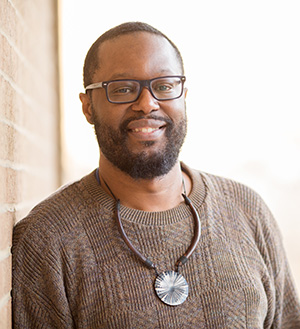In the summer of 1966, James Meredith, who had been the first black student admitted to the University of Mississippi, began a walk from Memphis, Tennessee to Jackson, MS, to encourage blacks to register to vote. Aubrey James Norvell, an unemployed white man from Memphis, shot Meredith three times with a shotgun, transforming a walk into a significant march for the civil rights movement. The time and place is the setting for Mississippi Born and Bred, the latest work by playwright Darius Omar Williams.
 Set in Clarksdale, MS in 1966 Mississippi Born and Bred is a coming of age memory play. Against the historical backdrop of segregation, Jim Crow laws, civil rights activism and the trauma of lynching in the Deep South, the drama tells the story of a 14-year-old black girl named Bupe as she struggles on her journey to an empowering black womanhood. The play also questions competing notions of blackness as Bupe struggles to embrace all of her complicated differences: her southern speech, her dark skin and her kinky hair.
Set in Clarksdale, MS in 1966 Mississippi Born and Bred is a coming of age memory play. Against the historical backdrop of segregation, Jim Crow laws, civil rights activism and the trauma of lynching in the Deep South, the drama tells the story of a 14-year-old black girl named Bupe as she struggles on her journey to an empowering black womanhood. The play also questions competing notions of blackness as Bupe struggles to embrace all of her complicated differences: her southern speech, her dark skin and her kinky hair.
“West African motifs are omnipresent,” says Williams, Assistant Professor of Theatre and Africana Studies. “The core of her story centers around her relationship with Miss Emma, a African seer, who spiritually navigates young Bupe through the complexes of her young girlhood. But it’s also a story about a girl who learns to take flight, in a metaphorical sense, which has ties to Yoruba, West African spiritual traditions.”
Mississippi Born and Bred is the first of a trilogy Williams envisions as part of an effort to infuse southern Mississippi motifs with spiritual West African themes to investigate how these spiritual codes of existence reside in close proximity.
“The southern African American church experience is not that different from the indigenous West African spiritual experience,” he says. “I’m looking at those similarities and how they coalesce with one another.”
Mississippi Born and Bred had its first workshop production in 2014 at The Mississippi Black Theater Festival, of which Williams is founding artistic director and which was supported by a Lehigh faculty grant. Williams then brought the original cast to Lehigh in March of 2015 for another reading at Zoellner Arts Center.
“Since that time the play has grown tremendously and taken on its own life,” he says. “It was accepted into the DC Black Theater Festival, a reading was staged at Victory Gardens Theater in Chicago, Illinois, and a reading at the National Black Theater Festival. It’s been well received and I’ve been revising it, as all writers do, based on the talk backs I’ve held after every reading. The long-term goal is to find a space in New York for an Off Broadway production.”
In addition to Mississippi Born and Bred, Williams is finishing a book chronicling the early history of the Negro Ensemble Company, one of the first African American theater institutions in the United States. Williams is chronicling the company’s first 11 years, 1967-1978. Williams’ monograph exams the company’s political, cultural, and artistic landscape from inception to established presence as an artistic organization.






